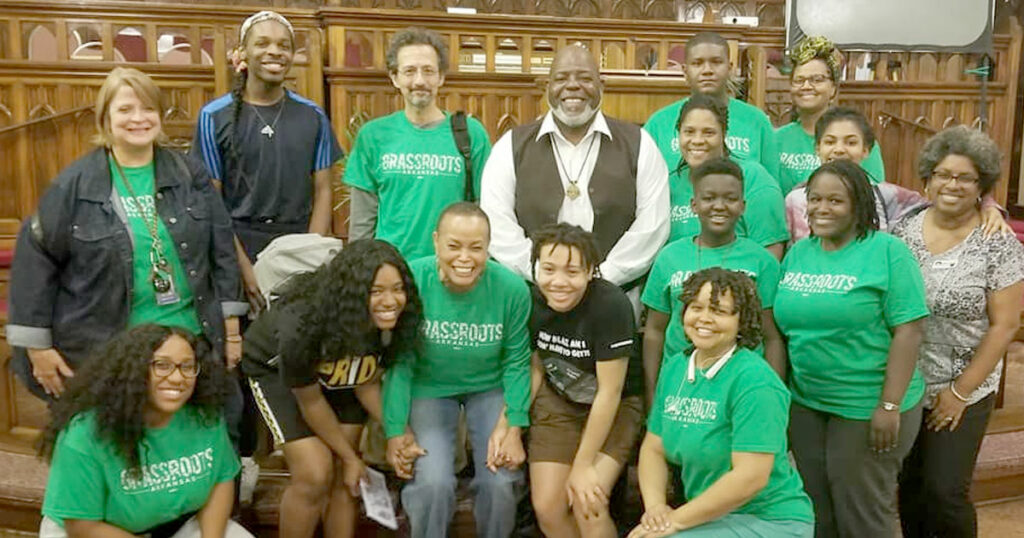Blog
Grassroots Arkansas: Winning Democracy and Equity in the Home of the Little Rock Nine

From demanding local control of Little Rock School District to hosting an equity bus tour to Little Rock middle schools to shine a light on the educational and economic disparities that exist in the district, for years Schott grantee partner Grassroots Arkansas (GA) has been a champion of public education across the state. Like so many Schott grantee partners, the Grassroots Arkansas community has seen long-existing inequities in education, food security, and housing reinforced and magnified through school closures and the COVID-19 pandemic.
Led by organizer Anika Whitfield, Grassroots Arkansas is organizing with neighbors and community members to realize equity in public education, housing, recreation, and food access. During the pandemic the twin tasks of support and advocacy have become more important than ever. “Grassroots Arkansas has challenged the powerful,” Whitfield said. “We are a serious force to contend with.”
Whitfield says she and her fellow organizers regularly receive calls from parents, youth and schools from districts across the state looking for advice and support. “We’re offering support to those who have been impacted by COVID-19, but also the comorbidities of systemic racism and poverty that only compound the stress.” The closure of grocery stores, community centers, and Boys & Girls Clubs in neighborhoods of color are depriving communities of the support they need more than ever, and while GA has made some progress, the push to equitably reopen them continues.
Thanks to Grassroots Arkansas and a large coalition of organizations, in 2020 the Little Rock School District (LRSD) was restored to local community control, winning a significant fight for local oversight and accountability of the district’s budget and administration. That the home of the Little Rock Nine had been deprived of democratic control of their public schools was a tragedy, one that has thankfully been reversed. LRSD voters have now elected a nine-member school board for the LRSD for the first time since 2014.
But while the fight for democratic representation has been won, that alone is not enough — the fight for equity and racial justice continues. The LRSD board voted just last week to close three schools (down from four, thanks to community pressure) in low-income communities that are majority Black or Latinx, despite having secured a recent increase in district taxes and a generous compensation package for the outgoing superintendent.
Whitfield sees the parallels between the movement work being done today and the initial steps toward school integration more than half a century ago. “Those students weren’t radical, they were simply saying, ‘it’s time. I’m willing to walk into this building.’ The desire is just to be able to breathe,” Whitfield said. “What GA does, like [civil rights activists] L.C. and Daisy Bates did for the Little Rock Nine, is to give support to those students, parents, and community members who are willing to walk in that boldness, and say, ‘you don’t have to walk alone, we’re with you.’”


